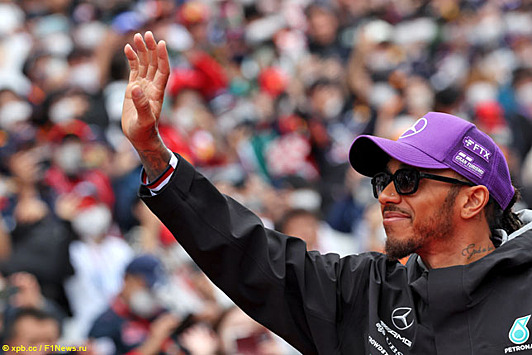Nervous Child Leaves Britain's Got Talent Stage During Live Show

Table of Contents
The Incident: A Detailed Account
The young contestant, whose identity we will respect by not disclosing, was performing a [insert act type, e.g., vocal performance, magic act, dance routine]. The initial moments of the performance showed promise; the child seemed confident and engaged with the audience. However, subtle signs of nervousness soon became apparent. A slight tremor in their hands during [specific moment in the act], a hesitant pause before a key line, and increasingly visible tears began to paint a picture of mounting anxiety.
The moment the child left the stage was particularly poignant. [Describe the moment – did they run, walk, what did they do? Did they say anything? How did the judges and host Ant and Dec react? Keep it brief and factual while respecting the child's privacy. Avoid invasive details]. The sudden silence that followed spoke volumes.
- Initial promising start to the performance.
- Visible signs of anxiety: trembling hands, tears, forgetting lines, noticeable hesitation.
- The child's decision to leave the stage, seemingly overwhelmed by emotion.
- Reactions from the audience, judges, and hosts – a mix of concern, understanding, and applause.
The Aftermath: Public Reaction and Social Media Response
The public's response to the incident was overwhelmingly supportive. A wave of empathy washed over social media, with countless viewers expressing their understanding and admiration for the child's bravery in facing such a daunting situation. Many shared their own experiences with stage fright and performance anxiety, creating a sense of shared vulnerability. While some comments acknowledged the pressure of performing on a national stage, the negativity was largely overshadowed by compassion.
Social media exploded with discussions surrounding the pressures placed on young performers. #BritainsGotTalent and #StageFright were trending, with many users sharing their stories and expressing concern for the child's well-being. Numerous supportive messages flooded the platform, demonstrating the power of online community in providing comfort and reassurance.
- Predominantly positive sentiment towards the child, highlighting empathy and understanding.
- Extensive discussions on social media about the pressures faced by child performers in talent shows.
- Relevant hashtags: #BritainsGotTalent, #StageFright, #PerformanceAnxiety, #ChildPerformers.
- Numerous supportive quotes from social media expressing admiration and understanding.
Performance Anxiety in Children: Understanding the Causes and Effects
Performance anxiety, a type of social anxiety disorder, is a common phenomenon impacting children of all ages. It manifests as excessive fear and apprehension before or during a performance. In children, this anxiety can stem from various factors, including: fear of failure, the pressure to perform perfectly, parental expectations, perfectionism, and a lack of self-confidence.
The symptoms of performance anxiety in children can be both physical and emotional. Physical manifestations include trembling, sweating, rapid heartbeat, nausea, and even panic attacks. Emotionally, children may experience feelings of intense nervousness, self-doubt, and fear of judgment. Untreated performance anxiety can lead to long-term psychological issues and negatively affect self-esteem and overall well-being.
- Common causes: fear of failure, parental pressure, perfectionism, lack of self-confidence, fear of negative judgment.
- Physical symptoms: trembling, sweating, rapid heartbeat, nausea, dizziness, shortness of breath.
- Emotional symptoms: nervousness, self-doubt, fear of judgment, feelings of inadequacy.
- Long-term effects: low self-esteem, social anxiety, avoidance behaviors, difficulties with public speaking and performance.
- Tips for parents/educators: create a supportive environment, focus on effort not outcome, practice positive self-talk, professional help if needed.
The Broader Discussion: Child Performers and Well-being
The incident on BGT raises broader questions about the ethics of child participation in high-stakes talent shows. While these competitions can provide platforms for showcasing young talent, the potential psychological costs must be carefully considered. The intense pressure to succeed, the potential for public criticism, and the long hours of rehearsal can negatively impact a child's emotional well-being.
Prioritizing a child's emotional health and happiness is paramount. Nurturing their talents should be approached with sensitivity and care, focusing on enjoyment and personal growth rather than solely on winning. Alternative approaches, such as smaller-scale performances, workshops, and community-based activities, can provide a less pressured environment for children to explore their talents and build confidence.
- Arguments for participation: opportunity to showcase talent, gain experience, build confidence (with proper support).
- Arguments against participation: potential for negative psychological effects, pressure to succeed, exploitation.
- Prioritizing a child’s well-being over competition is crucial.
- Creating a supportive environment, avoiding overly competitive pressures, and focusing on fun and development.
Conclusion
The nervous child leaving the Britain's Got Talent stage highlighted the vulnerability of young performers and the importance of understanding performance anxiety. The overwhelming public response showed empathy and compassion, initiating important conversations about the pressures faced by child performers and the need to prioritize their well-being. We must approach the nurturing of young talent with sensitivity, remembering that the pursuit of dreams should never come at the cost of a child’s mental health. Share your thoughts and experiences using #BritainsGotTalentAnxiety #NervousChildOnStage #ChildsPerformanceAnxiety. Let's continue this important discussion about supporting young performers and ensuring a nurturing environment for their growth.

Featured Posts
-
 Bakole Vs Ajagba Fight Your Guide To Betting
May 05, 2025
Bakole Vs Ajagba Fight Your Guide To Betting
May 05, 2025 -
 The Kanye West Bianca Censori Relationship A Look At Power Imbalances
May 05, 2025
The Kanye West Bianca Censori Relationship A Look At Power Imbalances
May 05, 2025 -
 Geopoliticheskie Strategii S Sh A I Evropy Sopernichestvo I Sotrudnichestvo
May 05, 2025
Geopoliticheskie Strategii S Sh A I Evropy Sopernichestvo I Sotrudnichestvo
May 05, 2025 -
 Lili Ferstappen Rozhdenie Docheri Gonschika Formuly 1
May 05, 2025
Lili Ferstappen Rozhdenie Docheri Gonschika Formuly 1
May 05, 2025 -
 Nhl Playoffs Breaking Down The First Round Matchups
May 05, 2025
Nhl Playoffs Breaking Down The First Round Matchups
May 05, 2025
